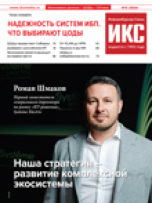| Рубрикатор |  |
 |
| Все новости |  |
World News |  |
 |
MySpace Music challenges Apple
| 25 сентября 2008 |
News Corp’s MySpace launches a new online music service on Thursday, aiming to loosen Apple’s grip on the US music industry and challenge all other online rivals.
The service, MySpace Music, also aims to come to the aid of a music industry reeling from the continued slide in CD sales.
MySpace Music is viewed by the music industry as an alternative to prior partnerships, most notably, its pact with Apple’s Steve Jobs.
Label chiefs have long grumbled that Apple’s iTunes service is primarily designed to funnel profits back to Apple’s iPod and iPhone devices at the expense of the music industry.
But so far, no contenders have managed to dent iTunes.
The big three labels – Vivendi’s Universal Music Group, Sony BMG and Warner Music Group – together own about 40 per cent of MySpace Music joint venture.
“Ultimately, it gives us some skin in the game,” says Rio Caraeff, Universal Music Group’s executive vice president of digital.
“It gives us a voice in the ongoing development of the business.”
EMI had been the lone holdout, but joined the group at the last minute. Sony ATV and independent music group The Orchard are also participating.
Chris DeWolfe, MySpace chief executive, says he wants MySpace Music “to be the biggest music catalogue in the world”.
Some 5m artists already own profile pages on MySpace.
The company believes it can better connect to its 120m global visitors, 65 per cent of whom already stream music on their profile pages, with a more integrated and flashier interface that gives members access to the catalogues of these artists rather than the handful of songs they can currently upload.
The new venture represents a new era in relations between labels and internet companies, Mr DeWolfe claims.
“There’s been animosity between technology companies and music companies [in the past]. We really believed that we would need to be in partnership with the music companies,” he says.
MySpace’s deal two years ago with Snocap to create a feature that let artists and bands sell their own music through MySpace never took off.
What is different this time is that MySpace Music users will be able to stream tracks for free from much larger catalogues with an option of buying through Amazon.com.
The site is backed by advertising from McDonald’s, Toyota, Sony Pictures and State Farm.
Music companies have also agreed to relax the standard licensing agreement they have struck with other streaming music services, which charges 1 cent for every stream.
Participating companies have now agreed to charge between six-tenths to seven-tenths of a cent per stream, one source says.
David Pakman, chief executive of eMusic, a rival online music subscription service, cast doubt on whether the free streaming model would be profitable.
“If they want to make money out of it they will have to negotiate some difficult deals with the labels.”
Richard Greenfield, media analyst at Pali Capital, sees this as a better deal for MySpace than the music industry.
“Whether it’s enough to offset the decline in the CD business is unclear,” he says. “For MySpace, it gives consumers far more to do on the site.”
One source says News Corp’s Rupert Murdoch has agreed to provide “a couple of hundred million” to start up the venture.
The music companies did not inject cash into the venture.
MySpace is considering selling a small stake in the new company to a private equity group although it was unclear if it would proceed with courting outside investors.
With News Corp backing it, the new venture would not need to raise working capital. However, a sale would establish a benchmark valuation, which would be welcomed by the music labels that are coming on board as equity partners.
Источник: Financial Times
Читайте также:
В 2023 году дата-центры Apple израсходовали более 2,3 млрд кВтч электроэнергии
В App Store обнаружены мошеннические инвестиционные приложения
Роскомнадзор закупает смартфоны для исследования их уязвимостей и скрытых угроз
Объем российского рынка смартфонов уменьшился и в штуках, и в в деньгах
Apple оплатила антимонопольный штраф в размере 906 млн рублей















Оставить свой комментарий:
Комментарии по материалу
Данный материал еще не комментировался.